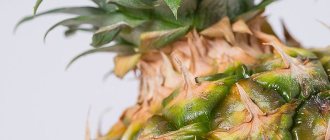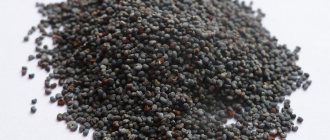What is kiwi and its composition
Kiwi is an exotic small fruit similar to a “shaggy potato” that is grown in many countries around the world. Botanists call it a berry that grows on a vine. This guest from New Zealand has a pleasant, refined taste and has a lot of useful benefits.
It is sold fresh in stores all year round, and when canned, it retains all its beneficial substances. Kiwi contains:
- folic acid;
- fiber;
- vitamins B, A, C, E and D;
- organic acids and pectins;
- flavonoids and beta-carotene.
In addition, it contains iron, potassium, magnesium, fluorine, iodine and calcium. It contains a minimal amount of fat and protein and is a dietary product.
100 g of kiwi contains the daily human need for magnesium, fluorine, calcium and potassium.
Can kiwi be consumed by pregnant women?
Kiwi can and should even be consumed by pregnant women, several times a week, because it contains a lot of useful vitamins and microelements that are very important for the body during pregnancy:
- Vitamin C (ascorbic acid) . The amount of vitamin contained in kiwi is not inferior to citrus fruits and even berries. It is this that has an immunostimulating effect and reduces the risk of colds and flu, which is especially important during the seasonal viral period. Therefore, it is in autumn and winter that pregnant women should eat one kiwi per day. In other seasons, it is enough to use it several times a week.
- Magnesium has a beneficial effect on the heart and relieves muscle spasms during uterine hypertonicity in pregnant women. In addition, it has a positive effect on the nervous system. An insufficient amount of magnesium in the body leads to nervousness and restless sleep, which negatively affects the mother’s overall well-being.
- Vitamin B9 (folic acid) . Doctors strongly recommend its use even when planning pregnancy and in the first months of gestation. The substance prevents the development of a neural tube defect in the fetus and prevents the risk of miscarriage in the early stages of pregnancy.
- Other microelements , thanks to which consuming kiwi reduces the risk of blood clots and atherosclerosis. Potassium copes well with high blood pressure, and the iron contained acts as a preventive measure for the development of anemia.
- Fiber is found in kiwi in large quantities and helps cope with constipation, which often causes discomfort in the third trimester.
- Vitamins A and E , known to everyone as essential substances for healthy skin and hair, are also present in this fruit.
Medicinal properties of the berry
Kiwi perfectly satisfies appetite, improves mood, strengthens the immune system and speeds up metabolism in the body. This fruit also strengthens blood vessels and prevents the development of inflammatory processes.
- By consuming this fruit, you can reduce high cholesterol in the blood, reduce the amount of fatty deposits that compress blood vessels, and this will reduce the risk of blood clots.
- Thanks to vitamin C, magnesia and fruit acids, the fruit is widely used in medicinal cosmetics . The fruit has a whitening and moisturizing effect on the skin, tones it.
- Kiwi peel is rubbed onto the face to moisturize. The pulp with sour cream and honey will be an excellent nourishing mask .
- People of any age benefit from the juicy fruit. It is especially useful for women who are expecting a baby.
What are the benefits of kiwi for pregnant women?
How to use?
Those who like to eat fruits and berries can eat kiwi in its pure form, or use it as an addition to a cake or muffin. So, if the taste has already become boring, but you don’t want to give up the beneficial properties of kiwi, you can try the following recipes.
Smoothie
A kiwi smoothie will help strengthen the immune system during the season, saturate the body with useful elements and curb the feeling of hunger. You will need:
- 1 kiwi;
- 1 banana;
- a quarter glass of apple juice;
- strawberries 5 pcs. (can be frozen);
- a teaspoon of honey.
All ingredients must be placed in a blender bowl and blended until smooth. Vitamin drink is ready!
The recipe for kiwi-banana smoothie is offered in the following video:
Fruit salad with kiwi
Cut your favorite fruit into cubes. These can be apples, bananas, pears, strawberries and any others. Add kiwi and pour natural yoghurt over the salad. This salad will fill you with vitamins and cheer up the expectant mother.
Meat salad with kiwi
This dish is very nutritious and is suitable for pregnant women who are not overweight. The salad is layered on a plate:
- cut boiled chicken meat into cubes;
- Cut kiwi and apples into slices;
- cut egg whites into cubes;
- combine ingredients and add mayonnaise;
- sprinkle the salad with egg yolk crumbs.
Keep in mind! Fruits and berries that have been subjected to heat treatment lose most of their beneficial properties.
The benefits of kiwi for expectant mothers and possible harm
Thanks to its amazing composition, this fruit is very useful during pregnancy. Kiwi helps pregnant women:
- cope with constipation;
- reduce nausea during toxicosis;
- normalize blood pressure;
- for swelling;
- strengthen the immune system.
Ascorbic acid, which is found in kiwi, helps the expectant mother maintain good health and fight bad mood.
If a pregnant woman experiences stress during pregnancy, then she definitely needs to eat kiwi to cope with a nervous disorder.
The mineral composition of kiwi helps strengthen the heart and blood vessels and increases hemoglobin. The fruit helps restore water-salt metabolism and prevents diseases resulting from the deposition of mineral salts.
Actinidin (a special protein) normalizes the functioning of the digestive system and affects blood clotting activity.
Benefits for the future baby
For the future baby, the composition of this fruit also plays an important role. Citrus has many medicinal properties and promotes the normal development and growth of the unborn baby.
The exotic fruit is considered the record holder for its high folic acid content. This acid affects the development of the nervous system of the unborn baby and promotes its proper development. Copper is needed for the formation of the child’s heart and blood vessels, for the nervous system and skeleton. Phosphorus strengthens bone tissue in the unborn child.
At the beginning of pregnancy, kiwi warns the unborn baby of neural tube abnormalities. It fully meets the needs of mother and baby with useful vitamins and microelements.
When is kiwi harmful?
No matter how healthy kiwi is, it can be harmful during pregnancy. It should be eaten with caution or avoided altogether if the pregnant woman has the following diseases:
- gastritis;
- duodenal diseases;
- stomach ulcer;
- allergy to citrus fruits;
- kidney disease in the acute stage.
Spoiled or unripe kiwi can cause harm, so when choosing it, it is recommended to carefully select the product.
Beneficial properties of green fruit
The beneficial properties of kiwi were learned at the beginning of the last century. Japanese and French healers used the fruit in preparing decoctions and creating potions. Later, as a result of a number of studies, it became known about the record content of vitamin C and antioxidants in the healing pulp. Their combination with folic acid and omega acids only convinced scientists of the unique properties of kiwi. Its benefits are based on a number of complex compounds and groups of vital vitamins present in the composition, namely:
- 90 mg vitamin C;
- 45 mg vitamin K;
- 4 mg vitamin E;
- 1 mg vitamin B6.
Mineral substances in kiwi include copper, potassium, calcium and iron, the deficiency of which leads to anemia, and it is because of this that pregnancy is often terminated. The presence of folic acid has a beneficial effect on the development of the fetus, especially during the formation of the baby’s nervous and circulatory system. In addition, the emerald “storehouse of vitamins” includes magnesium, sodium and phosphorus.
The benefits of kiwi are mainly manifested in:
- cardiovascular diseases;
- sleep disorders;
- vitamin deficiency;
- disorders of the musculoskeletal system (strengthens bones);
- intestinal diseases;
- diseases of the genitourinary system.
Argentine scientists have found that a unique fruit can affect the body on several levels; the ratio of minerals and vitamins in kiwi is so balanced that it can even protect against damage to the tissue of internal organs.
Scientists learned about the positive effect of kiwi on hematopoiesis relatively recently, about 15 years ago. It was found that the fruit pulp contains actinidin, which prevents the development of thrombosis, and the balanced iron content restores hemoglobin levels.
Interesting read: bananas can solve 7 problems of a pregnant woman
Kiwi contains potassium and magnesium in an ideal ratio, which has a beneficial effect on blood vessels and strengthens the heart. It has been scientifically proven that eating just a couple of fruits a day can prevent atherosclerosis.
Many people use kiwi as part of weight loss diets. The fruit not only suppresses appetite, but also actively breaks down fats. This exotic delicacy improves the functioning of the gastrointestinal tract and frees the body from toxic accumulations, which also promotes excess weight loss.
In addition, kiwi has a beneficial effect on kidney function, reduces the risk of nephritis and activates the urinary tract. Often the fruit is included in the diet for urolithiasis.
In Japan, kiwi is considered the most reliable remedy for sexual dysfunction in men, and the benefits of the fruit are undeniable in the treatment of the female reproductive system.
How much kiwi can you eat per day and how to choose it correctly
It is necessary to buy fruits only in trusted stores. When purchasing, you need to make sure that the fruit is of high quality. To do this, you need to pay attention to the following points:
- the fruit should be slightly soft;
- with light pressure there should be no liquid;
- if there are dark spots, then the fruit is not healthy and cannot be eaten;
- Normal kiwi has practically no smell, but the wine smell should especially alert you;
- gray coating on kiwi - the fruit is rotting.
A pregnant woman should regulate how much kiwi to eat per day herself. If there are no contraindications, then the optimal amount per day will be 2-3 pieces. Use it in moderation, as a large amount can harm yourself and your baby instead of benefiting it.
If you have never tried this fruit or ate very little of it before pregnancy, then do not go too heavy on it. It’s better to introduce it into your diet gradually, adding it to a salad or any other dish.
From all of the above, we can conclude that kiwi during pregnancy brings great benefits to both mother and baby. If you have no contraindications, then a few pieces a day will make you feel healthy and full of energy throughout your pregnancy.
Methods of use
Kiwi can be eaten with:
- salad;
- cocktail;
- jam.
Most often, the fruits are eaten fresh, which allows them to retain the maximum amount of vitamins. To do this, peel the kiwi and cut it into rings or slices.
Many people prefer to mix the fruit with other fruits or berries, for example, banana, strawberry, apple, apricot, and prepare fresh salads. Regular yogurt would be an excellent dressing for this salad. And by blending all the berries and fruits in a blender, you can get an excellent rich vitamin cocktail.
This is interesting: How to learn to do fish pose in yoga
We recommend finding out if pregnant women can eat: bananas, tangerines, oranges, pears, grapes, feijoa, lemon, apples, melon, quince, watermelon and mango.











